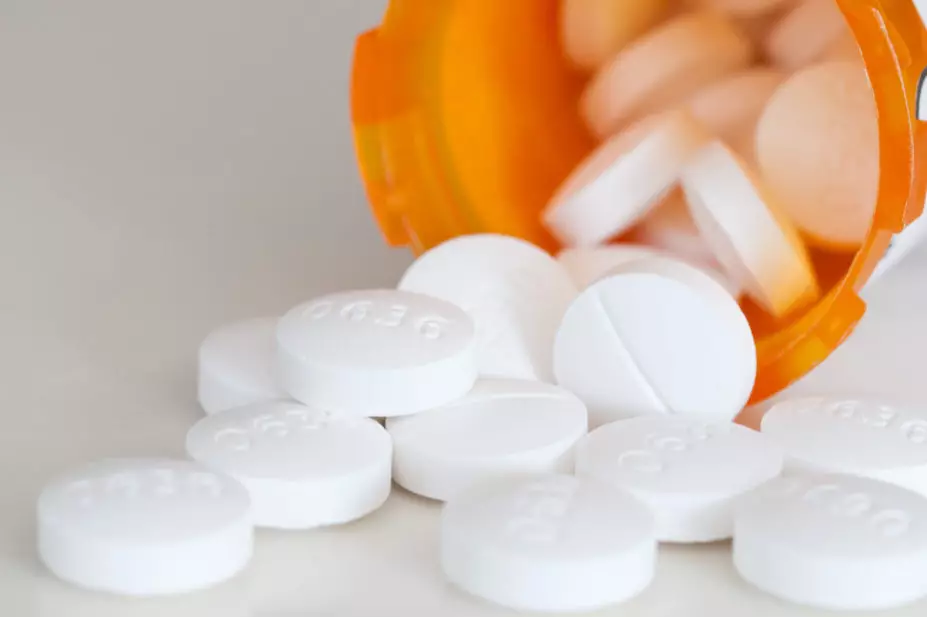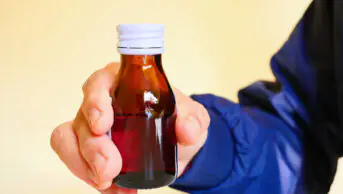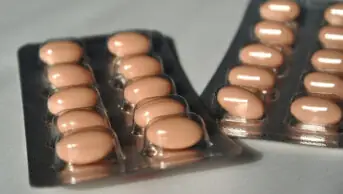
Felix Choo / Alamy Stock Photo
The National Institute for Health and Clinical Excellence (NICE) has not taken into account the experience of thousands of patients in the advice it gives on tapering the dose when discontinuing certain medicines, according to a group of parliamentarians.
In its response to the publication of NICE guidance on how to manage the withdrawal of medicines, such as opioids, benzodiazepines and antidepressants, the All-Party Parliamentary Group (APPG) for Prescribed Drug Dependence says the institute “fails to listen to patient evidence”.
The final guidance, published on 20 April 2022, is the first from NICE to specifically cover medicines that can cause dependence or withdrawal symptoms.
The guidelines follow on from the publication of Public Health England’s 2019 evidence review, ‘Dependence and withdrawal associated with some prescribed medicines‘, which revealed that more than a quarter of the adult population in England (26.3%) had been prescribed a dependency-forming medicine in the previous year.
While the APPG, which is made up of MPs and peers, welcomed several aspects of the guidance — including the need for doctors to offer alternative [treatments], and the requirement for a written management plan at the start of a prescription — it said that the guidelines “fail to provide simple instructions for slow tapering, which is the most important intervention for safe withdrawal”.
The APPG added that slow tapering over several months or longer is “based on the experience of thousands of patients” and “yet the new guidelines provide no information on how slowly to taper, how frequently to reduce and by how much.”
“Without these details, doctors are unlikely to change their current practice,” it says.
Danny Kruger, chair of the APPG for Prescribed Drug Dependence, said: “We will be urging NICE to reconsider both this evidence and their process to ensure that patient experience is properly represented in future.”
However, in a statement given to The Pharmaceutical Journal, NICE said the claim that it had not listened to patient evidence “was simply not correct” and that the guideline committee had considered the “most relevant, reliable and robust evidence available”, including qualitative and quantitative data.
Paul Chrisp, director of the centre for guidelines at NICE, said: “There is no one-size-fits-all approach to safely withdrawing from medicines associated with dependence, with ‘simple instructions’ that can be applied to everyone regardless of their individual circumstances. This is why we promote a more person-centred approach.”
He added: “The guideline makes clear that this tapering may need to be slow for many people. We are also working closely with NHS England and Improvement, Health Education England and others to help implement the guideline to benefit patients.”
The Royal Pharmaceutical Society (RPS) also raised concerns over the tapering advice in the draft version of the NICE guideline. In response to a consultation on the draft guideline, the RPS said the advice on slow tapering is “open to too much interpretation and could be harmful”.
In response to the publication of the final NICE guideline, Laura Wilson, policy and practice lead for the RPS in Scotland, said: “We welcome the publication of the guidelines and the acknowledgement within them that the rate of safe withdrawal varies between people, as well as noting that even for the same person that rate can vary over time. This will encourage a real person-centred approach to dose reduction when stopping these medicines.
“The guidance mentions the use of published withdrawal schedules and we feel it would have been helpful to include practical evidence-based information on tapering rates, the interval between dose reductions, how to reduce doses and the overall duration of taper as we suggested in our consultation response.
“This would have given prescribers confidence in their recommendations and a starting point for discussion with their patient, allowing them to formulate a plan together which would afford patients the best chance of successful withdrawal.”
Box: What does the final guidance say?
When agreeing a dose reduction schedule with the person:
- explain the risk of abrupt discontinuation and that the rate of safe withdrawal varies between people and can vary over time for the same person;
- balance the risk of adverse events from continued exposure to the medicine with minimising the risk of withdrawal symptoms by slow dose reduction and withdrawal;
- ensure that the planned rate of reduction is acceptable to the person;
- explain that although withdrawal symptoms are to be expected, the reduction schedule can be modified to allow intolerable withdrawal symptoms to improve before making the next reduction;
- consider giving the person additional control over the process of dose reduction (for example, by issuing their usual daily dose in a form that allows them to reduce the amount in small decrements at a pace of their choosing, rather than issuing successive prescriptions for reduced daily doses);
- agree regular intervals for reviewing and adjusting the reduction schedule as needed;
- ensure the person knows who to contact if problems occur.
If the person is withdrawing from an opioid, benzodiazepine, Z‑drug or antidepressant, suggest a slow, stepwise rate of reduction proportionate to the existing dose, so that decrements become smaller as the dose is lowered, unless clinical risk is such that rapid withdrawal is needed.
If the person is withdrawing from a gabapentinoid, reduce the dose by a fixed amount at each decrement, unless clinical risk is such that rapid withdrawal is needed.
1 comment
You must be logged in to post a comment.



Follow the NICE guidelines and avoid unnecessary litigation.
They do not see individual patients face to face and cannot make idicts on that basis. Let practitioners practice and politicians debate.